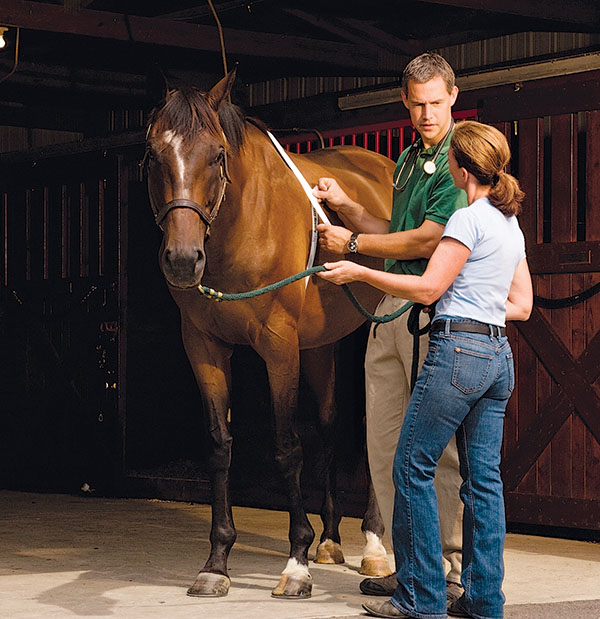A successful deworming program isn’t just about which drug to use. By considering both chemical and non-chemical parasite-control strategies, you and your vet can be part of the effort to prolong the effectiveness of the drug classes currently available (by slowing down the development of dewormer resistance). “It’s important to invite yourself in to be part of the process,” advises Dr. Wendy Vaala of Merck Animal Health. She encourages owners to have their vet out for a parasite-control visit, then take control of the conversation with these discussion starters: What parasites should I be worried about on my farm? When, why, and how often should fecal egg counts be performed? What non-chemical parasite-control strategies (such as pasture rotation) are realistic for my set-up?

Photo courtesy of Merck Animal Health
Read More:
A Modern Approach to Deworming
Parasite Control
Easy Ways to Deworm Your Horse






